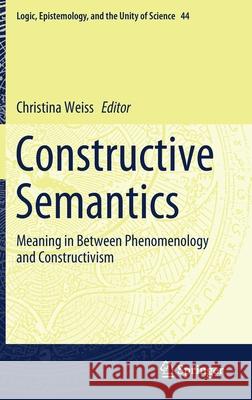Constructive Semantics: Meaning in Between Phenomenology and Constructivism » książka
topmenu
Constructive Semantics: Meaning in Between Phenomenology and Constructivism
ISBN-13: 9783030213121 / Angielski / Twarda / 2019 / 193 str.
Constructive Semantics: Meaning in Between Phenomenology and Constructivism
ISBN-13: 9783030213121 / Angielski / Twarda / 2019 / 193 str.
cena 484,18 zł
(netto: 461,12 VAT: 5%)
Najniższa cena z 30 dni: 462,63 zł
(netto: 461,12 VAT: 5%)
Najniższa cena z 30 dni: 462,63 zł
Termin realizacji zamówienia:
ok. 22 dni roboczych
Bez gwarancji dostawy przed świętami
ok. 22 dni roboczych
Bez gwarancji dostawy przed świętami
Darmowa dostawa!
Kategorie BISAC:
Wydawca:
Springer
Seria wydawnicza:
Język:
Angielski
ISBN-13:
9783030213121
Rok wydania:
2019
Dostępne języki:
Numer serii:
000318549
Ilość stron:
193
Waga:
0.46 kg
Wymiary:
23.39 x 15.6 x 1.27
Oprawa:
Twarda











